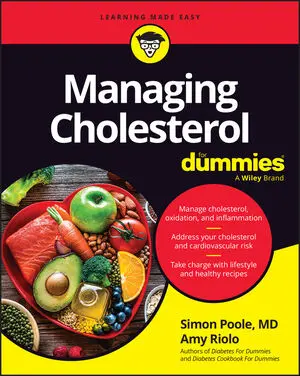Counting cholesterol
The National Cholesterol Education Program (NCEP) issued this data about adult guidelines for total cholesterol, LDL cholesterol (the bad stuff), and HDL cholesterol (the good stuff). These cholesterol numbers apply to people ages 20 to 74:
| Total Cholesterol (mg/dL) | Status |
|---|---|
| <200 | Excellent |
| 200-239 | Borderline high |
| >240 | High |
| LDL Cholesterol (mg/dL) | Status |
| <100 | Excellent |
| 100-129 | Pretty good |
| 130-159 | Borderline high |
| 160-189 | High |
| >190 | Very high |
| HDL Cholesterol (mg/dL) | Status |
| <40 | Low |
| >60 | High |
Source: National Cholesterol Education Program
Counting Kids’ Cholesterol
Counting cholesterol in kids is different than in adults. The American Heart Association (AHA) suggests only testing children older than age 2 and who have a family history of coronary artery disease — a parent or a grandparent with high cholesterol or a history of heart disease. The AHA-recommended cholesterol levels for children and adolescents between the ages of 2 and 19 are:
| Total Cholesterol (mg/dL) | LDLs (mg/dL) | Status |
|---|---|---|
| <170 | <110 | Acceptable |
| 171-199 | 111-129 | Borderline |
| 200 or higher | 130 or higher | High |
Source: The American Heart Association
Recommended blood pressure levels (systolic/diastolic)
Having high blood pressure, or hypertension, causes your heart to work harder than normal to pump blood. Get a blood pressure test and look at your numbers to see if you’re at risk for health problems related to high blood pressure.
| Blood Pressure Category | Systolic (1st Number) | Diastolic (2nd Number) |
|---|---|---|
| Normal | less than 120* | less than 80* |
| Prehypertension | 120–139 | 80–89 |
| High | ||
| Stage 1 | 140–159 | 90–99 |
| Stage 2 | 160 or higher | 100 or higher |
*All figures measured in mm/Hg (millimeters/mercury). Source: The American Heart Association.
Rate your weight with BMI (body mass index)
BMI (body mass index) is a valuable health predictor. The higher your BMI number, the higher the risk of health problems including coronary heart disease, cancer, and diabetes. Body mass index (BMI) is a gender-free measurement that relates height to weight. To get your BMI, use the following equation:
Your weight (lbs)/Your height (in)2 × 705
For a person who weighs 138 pounds and stands 5’3” tall, the equation looks like this:
BMI = W/H2 × 705
= (138 pounds/63 × 63 inches) × 705
= (138/3969) × 705
= 24.5 BMI
Apply your BMI number to the following categories:
| BMI | Status |
|---|---|
| <18.5 | Underweight |
| 18.5-24.9 | Healthy |
| 25-29.9 | Overweight |
| >30 | Obese |
| >40 | Extremely obese |
Source: The National Center for Health Statistics
Tips to control cholesterol
Some things that affect your cholesterol you have control over. Put these healthy lifestyle guidelines into use to elevate your HDLs (good cholesterol) and decrease the LDLs (bad cholesterol), along with keeping your heart healthy.
-
Cut back on fatty foods.
-
Lose a few pounds.
-
Exercise every day. Okay, every other day.
-
Stop smoking.
-
Drink in moderation.
Your diet matters when it comes to your cholesterol numbers. To help control your cholesterol by eating healthy, go with the American Heart Association’s 30-10-300 food plan:
-
No more than 30 percent of your total daily calories from fat
-
No more than 10 percent of your total daily calories from saturated fat
-
No more than 300 mg cholesterol a day






